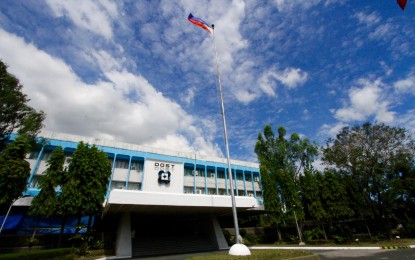
MANILA – The Department of Science and Technology (DOST) introduced on Thursday nine research and development (R&D) projects on artificial intelligence (AI), and turned over high-performance computing machines (HPCs) to each project proponent.
In an interview with the Philippine News Agency, Philippine Council for Industry, Energy and Emerging Technology Research and Development (PCIEERD) Director Enrico Paringit said the DOST provided less than PHP5 million grant per project, excluding the price of the HPC.
"We are working on AI infrastructure development, research capacity development, industry applications, and policy for AI," he said. There is a need for fast computing and data storage capacity in the AI infrastructure, he added.
"We hope to use AI to see the relation of our actions and how the pandemic behaves, That requires a lot of number crunching, massive data, and sophisticated models. AI will play a key role in explaining causal relationships between socio-economic activities and the effects of the pandemic," Paringit said.
He pointed out that AI has been helpful while the country deals with the coronavirus disease 2019 (Covid-19) pandemic.
He said the Department of Health has been using KIRA (Katuwang na Impormasyon para sa Responsableng Aksyon) chatbot.
Using the chatbot, the public could ask basic queries such as what are the symptoms of Covid-19, or how many cases were recorded, among others.
The DOST-PCIEERD virtually also launched the following projects on Thursday:
Chatbot that monitors the health of students
This multilingual chatbot for health monitoring of public school children can create a system that can interpret audio input and can converse with students using Filipino and Bisaya.
The information gathered by this chatbot will be extracted to update the health database of students stored. Health analytics and visualization of the collected data will also be provided for decision-making.
The pilot version of this chatbot will be deployed in public schools in partnership with the Department of Education.
Autonomous vehicles that help the society
The Autonomous Societally Inspired Mission Oriented Vehicles (ASIMOV) Program will take on the challenge of developing AI-enhanced, mission-driven robots working autonomously or with humans.
In its initial phase, it will focus on laying the groundwork by developing and innovating these key functional modules of intelligent mobile robots: sensing, actuation, control, navigation, and communications.
These robots will initially be tested in realistic emulated surroundings and eventually evaluated in actual environments. They will be used as learning platforms for building effective field-ready robots during the later phases of the ASIMOV Program.
AI for efficient processing of available big data
Philippine Sky Artificial Intelligence Program (SkAI-Pinas aims to bridge the gap between the availability of massive remote sensing data in the country, and address the lack of a sustainable technology-based framework that will facilitate their widespread processing systematically and effectively.
This comprises an AI knowledge base, including experts, protocol, and an AI repository for models and labeled images to accelerate the workflows of remote sensing applications and fill the gaps in past and present remote sensing projects.
Tremor sensors to monitor the structural health of infrastructures
The system will be made up of less than 50 sensors, will utilize the internet of things (IoT) and mesh networks, and can be installed in buildings, bridges, or metro rail systems.
The system will be pilot tested in the cities of Biñan and Sta. Rosa, Laguna before large-scale deployment within cities in Metro Manila.
Once fully developed, the project team will work on the commercialization of the system for it to be used by different infrastructure stakeholders such as real-property owners, the Department of Public Works and Highways local government units, and city engineers.
Intelligent system for traffic control and management
This system will be developed using a sensor network and deep learning to monitor traffic in a selected area.
The research team will design a road and vehicle traffic simulation with traffic lights based in Butuan City. A prototype of intelligent mobile traffic lights and mobile-based applications that enable easy access to traffic conditions will also be developed.
Towed camera system for marine litter monitoring
The researchers aim to develop cost-effective technology to monitor and quantify marine litter in shallow coastal areas.
They will base their technology on an existing towed optical camera array system for deep-sea monitoring that has undergone sea trials. They will redesign and improve this by adding sensors and cameras to be efficiently used in shallow coastal water surveys.
Automated software for faster spectroscopy analysis
This will be an automated software that accepts values from a standard Impedance Spectrometer and uses a machine-learning algorithm to identify electrical, mass, and temperature parameters by looking into the time series plot and plot library.
The developed algorithm will be tested and deployed at UPLB’s Institute of Mathematical and Physical Sciences Instrumentation Laboratory. The laboratory houses projects concerning materials development and testing. (PNA)
